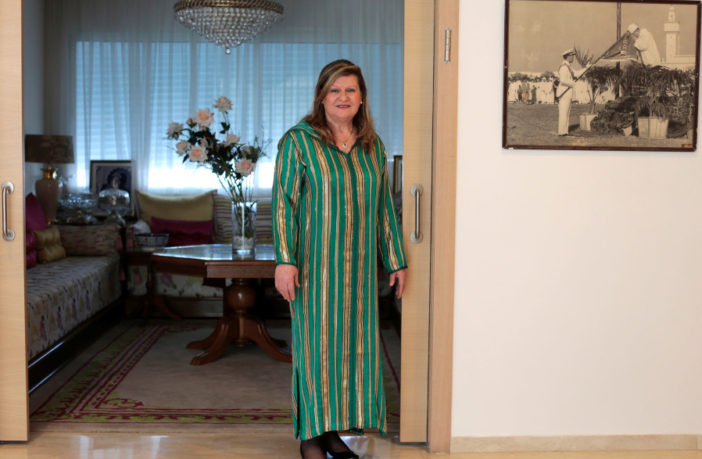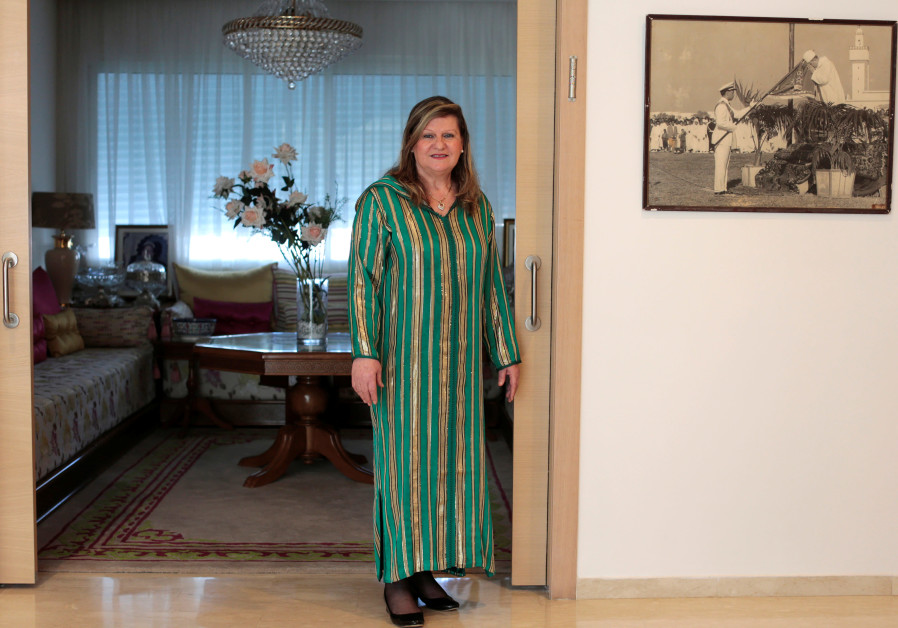The Jerusalem post
by Reuters
The Moroccan Jewish community dates back to Roman times and for centuries Jews served the royal court as ambassadors, diplomats, ministers and advisors.
Suzanne Harroch speaks and sings in Judeo-Moroccan, a language of a once-thriving Jewish community that numbered about 300,000 – one of the largest in the Muslim world.
Today, she and her husband are two of only 2,500 Jews left in Morocco, a community that is aging and dwindling even as it enjoys constitutional recognition and protection.
“I identify myself as Moroccan first, then Jewish,” the mother of three said in her house in Rabat ahead of Pope Francis’ visit, which Jews have welcomed as an opportunity to highlight a status they say is unique in the Muslim world.
On Saturday, Jewish leaders joined Christian representatives in the front row at two events presided over by the pope and King Mohammed VI on interfaith dialog.
Morocco’s 2011 constitution recognizes the “Hebraic” constituent as a component of the national identity. Jews in the north African Kingdom have their own courts, family code and schools and even a state-supported Jewish heritage museum.
Unlike many Moroccan Jews, who left for Israel, Europe and America in the past six decades because of grinding poverty and political uncertainty, Harroch and her husband decided to stay.
“Morocco is where I belong. I feel safe here,” said Harroch, who worked as hotel director until her recent retirement. Her husband is also Jewish and works as a doctor serving the Muslim community.
She now dedicates her time to singing in Judeo-Moroccan as part of a musical group made up of Muslim musicians who help her delve deep into the country’s ancient Jewish heritage.
The Moroccan Jewish community dates back to Roman times and for centuries Jews served the royal court as ambassadors, diplomats, ministers and advisors.
During the French colonial era, King Mohammed V refused to apply the antisemitic measures imposed by the collaborationist French Vichy regime during the Nazi occupation of France in World War Two.In 2010, his grandson, the current king, launched a program to restore hundreds of synagogues, Jewish cemeteries and heritage sites across the country, and reinstated the original names of some Jewish neighborhoods that had been changed during and after the colonial era.
The king also paid for the restoration of the Jewish cemetery in the island nation of Cape Verde, more than 2,000 miles away, as it contains the graves of Moroccan Jews who emigrated there.
Moroccan Jews say they feel protected by the king.
“He is the head of all the faithful, both Muslims and Jews,” said Davide Toledano, head of Rabat’s Jewish community, which now has less than 200 members.
Morocco’s 23,000 Roman Catholics – most of them expatriate Europeans, mainly French, and sub-Saharan African migrants – make up less one percent of the population of about 35 million.
Addressing the pope on Saturday, the king, who is also Morocco’s top religious authority, said: “I cannot speak of the land of Islam as if only Muslims lived there …. I protect Moroccan Jews as well as Christians from other countries who are living in Morocco.”
Zhor Rehihel, director of the museum of Moroccan Judaism in Casablanca, is a Muslim.
“Jewish heritage is part of our collective and diverse Moroccan identity that we should preserve,” she said.








